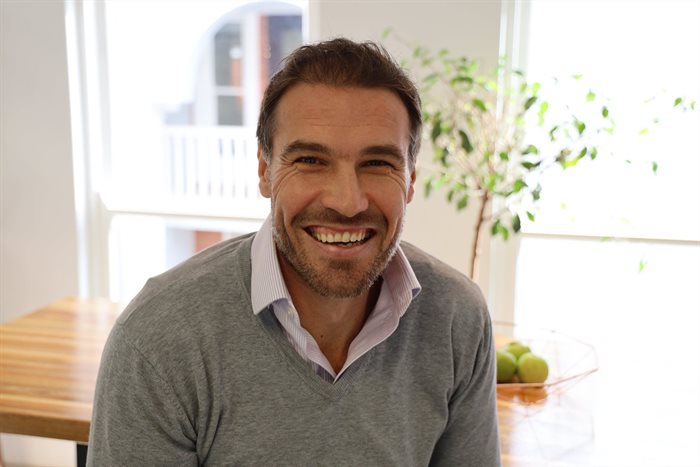
President Cyril Ramaphosa shared in his address, “There are moments in the life of a nation when old certainties are unsettled, and new possibilities emerge. In these moments, there is both the prospect of great progress and the risk of reversal. Today, we are faced with such a moment. The path we choose now will determine the course for future generations.”
This groundwork starts with a massive rollout of infrastructure, especially in energy, roads and water security. With the Infrastructure Investment Plan still in play, President Cyril Ramaphosa announced that government will make an initial investment of R1.8bn in infrastructure development. It’s undeniable that earthworks as well as the infrastructure of roads and essential services is key to socioeconomic reform and connecting communities that have historically not been integrated before.
To achieve this, it requires collaboration between public and private sector in order to stimulate infrastructure, bolster employment, create inclusive communities and generate rates income for the respective cities. There is a 360-degree cycle when you start from grassroots levels. For example, Bridge City in KwaZulu-Natal is a prime example of how Tongaat Hulett Property, along with their development partners, have undertaken a multi-billion-rand, presidential lead project to create a first-of-its-kind development in South Africa. The purpose of Bridge City is to connect the communities of Inanda, Ntuzuma, KwaMashu and Phoenix to the broader city. Beyond that, it continues to unlock commercial, retail and residential opportunities that allow for further development of new transportation systems and generate thousands of jobs.
As part of the infrastructures for improvement, the electricity crisis was highlighted, and it was announced that several new energy generation projects will be taken up throughout the year. Following this, it’s vitally important that developers look at ways to significantly decrease our carbon emissions and help South Africans lead greener lives. We welcome this as a key development trend within South Africa going forward, especially as developers work more closely with entities such as Green Building Council South Africa to expand green-rated living across the country. The likes of International Housing Solutions, behind developments like Ballito Groves and Mason Arbour Town, finance the development of energy efficient, affordable housing communities through achieving EDGE (Excellence in Design for Greater Efficiencies) certification, which also reduces living costs for their residents.
President Cyril Ramaphosa stated that water is the country’s most precious natural resource, sharing that, “It is vital to life, to development and to economic growth. That is why we have prioritised institutional reforms in this area to ensure future water security, investment in water resources and maintenance of existing assets.” Management associations are game-changers in South Africa as they collaborate with municipalities to ensure neighbourhoods are safe and maintained, from fixing pavements to initiating water system projects that ensure far-reaching communities, as well as their own, have access to clean water.
This is an example of how private and public sectors can effectively work hand-in-hand.
The president in his address put a lot of emphasis on the positive impact that private business has on the growth and sustainable future of our country. He said, “We all know that the government does not create jobs. Businesses do. Around 80% of all the people employed in South Africa are employed in the private sector.” This is probably one of the most prominent statements the country has heard in many years. KZN-based Devmco Group is a prime example of how a private local business is making headway and significant change in the catalytic Sibaya Coastal Precinct project. They recently announced a R2bn sales achievement for their Salta Sibaya development, which was launched less than 12 months ago, and makes it South Africa’s fastest selling development in history. This successful milestone will allow this private business to generate R30–R40m in rates for the municipality, create 1000–2000 permanent jobs, as well as create an additional 10,000–15,000 short-term jobs over the next year.
The call for innovation and digitisation was another highlight from SONA and it goes without saying that technology is changing the face of property development. The pandemic has really allowed South Africans to engage in the digital space more than ever before and making this accessible to all South Africans will be revolutionary. We have different levels of developments that all see the critical need for the integration of technology from an online buying process all the way through to the convenience around how residents live. The Watt Club, an inner-city Durban rejuvenation project backed by Urban Lifestyle Investment utilises the innovative HOMii App which gives its residents total digital control and allows them to access their apartment, log maintenance requests, book events, co-working spaces or gym classes and pay for internal services. Devmco Group is another highly progressive development entity breaking the boundaries with technology, and sustainability, as they have pioneered KZN’s first smart village, coupled with the ‘true wallet’ that provides convenient billing on levies and utilities, while presenting an energy consumption profile for residents.
It’s not just the big industry heavyweights that will tow the line for South Africa to make significant change though. All South Africans will need to put their weight behind rebuilding a stronger country and a steady economy. At Rainmaker Marketing, we are fortunate to work with an array of private development entities and community associations that continue to change the landscape of our country, bolster foreign and local investment, generate revenue for municipalities and create significant employment. For us, it’s more than just marketing lifestyles. These big and small developments that we launch foster socioeconomic progress and have a significant and positive impact on our communities that is required to meet the needs of our nation to thrive and prosper.